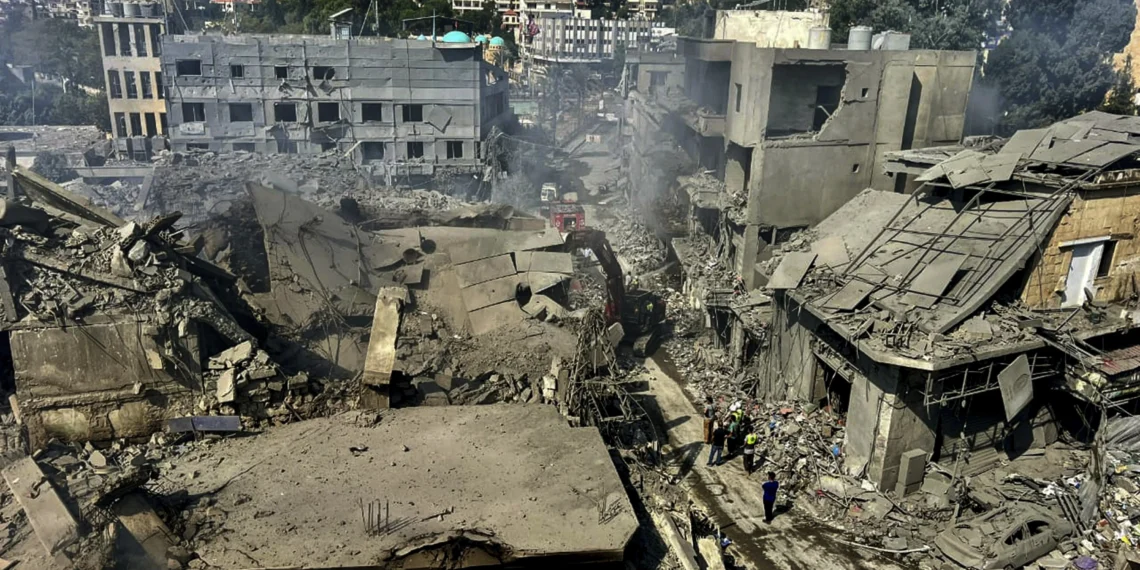Israel and the United States have recently been discussing the possibility of a post-Hezbollah Lebanon. However, it is important to note that this discussion is premature and should not be taken as a realistic plan for the future of Lebanon. The idea of a post-Hezbollah Lebanon is nothing more than a fantasy concocted by the U.S. and Israel, and it is important for the international community to not fall for this illusion.
The current situation in Lebanon is complex and fragile, with Hezbollah playing a significant role in the country’s political and social landscape. The militant group, which is backed by Iran, has been a major player in Lebanese politics for decades and has a strong support base among the country’s Shia population. While the U.S. and Israel view Hezbollah as a terrorist organization, many in Lebanon see them as a legitimate resistance group that fought against Israeli occupation in the past.
The U.S. and Israel’s desire for a post-Hezbollah Lebanon is not new. Both countries have long seen Hezbollah as a threat to their interests in the region and have been working towards weakening the group’s influence in Lebanon. However, their efforts have been largely unsuccessful, and it is unlikely that they will be able to achieve their goal of a post-Hezbollah Lebanon anytime soon.
One of the main reasons why a post-Hezbollah Lebanon is not a realistic possibility is the fact that the group has a strong and dedicated support base in the country. Hezbollah provides social services, such as healthcare and education, to its supporters, which has helped them gain popularity among the Lebanese people. This support base is not something that can be easily dismantled, and any attempt to do so would only lead to further instability in the country.
Moreover, Hezbollah is deeply entrenched in Lebanese politics and has a significant presence in the country’s parliament and government. This means that any attempt to remove them from the political scene would require a major political upheaval, which is highly unlikely to happen without causing chaos and violence in the country.
Furthermore, the U.S. and Israel’s plan for a post-Hezbollah Lebanon fails to take into account the complex sectarian dynamics in the country. Lebanon is a diverse country with a delicate balance of power between different religious and ethnic groups. Any attempt to remove Hezbollah from the equation would upset this balance and could potentially lead to a sectarian conflict.
It is also important to note that Hezbollah is not the only issue that Lebanon is facing. The country is currently going through a severe economic crisis, with high unemployment rates and a struggling economy. The Lebanese people are already suffering, and any attempt to destabilize the country further would only make their situation worse.
The U.S. and Israel’s fantasy for a post-Hezbollah Lebanon also ignores the fact that the group is deeply rooted in the region. Hezbollah has a strong presence in neighboring Syria and Iraq, and any attempt to weaken them in Lebanon would only push them to expand their influence in these countries. This could potentially lead to a wider regional conflict, which is something that no one wants.
In conclusion, the idea of a post-Hezbollah Lebanon is nothing more than a fantasy created by the U.S. and Israel. It is important for the international community to not fall for this illusion and instead focus on finding a peaceful and sustainable solution for the current situation in Lebanon. Any attempt to remove Hezbollah from the country would only lead to further instability and could potentially have disastrous consequences for the region. It is time for the U.S. and Israel to stop living in a fantasy and start working towards a realistic and peaceful solution for Lebanon.







